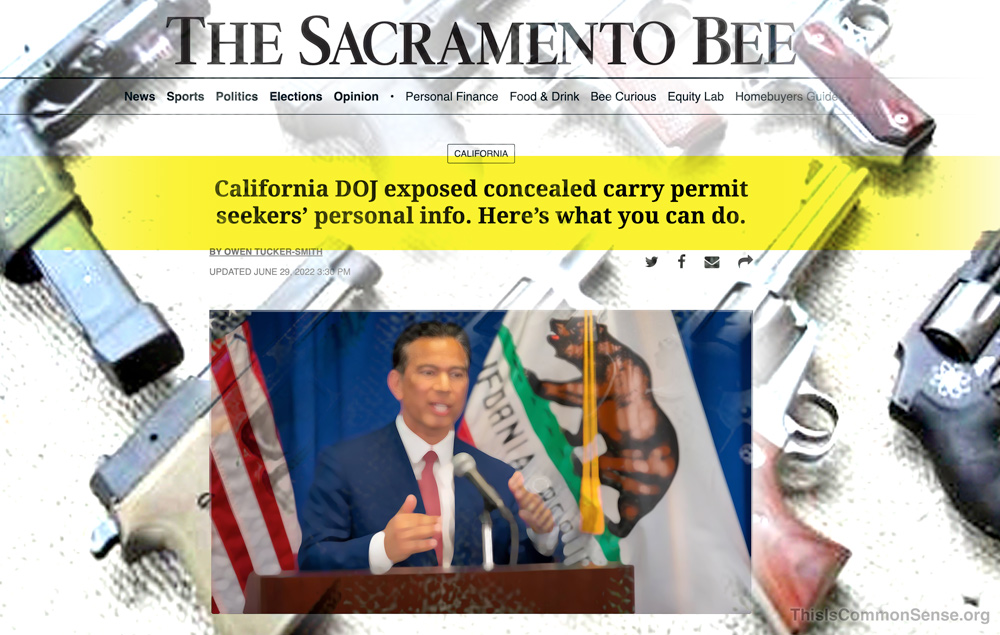“Just an accident?”
Maybe.
But the “accidental” release of the private information of thousands of California gun owners is just the sort of thing that many foes of Second Amendment rights would happily perpetrate.
So we can be forgiven if we harbor doubts.
On June 27, the California Justice Department’s 2022 Firearms Dashboard Portal went live. The publicly accessible files included private details — names, dates of birth, and home addresses — about persons who had applied for concealed carry permits between 2011 and 2022. More than enough information to cause trouble.
The info was removed the next day. Attorney General Rob Bonta said that his office would investigate.
The California Rifle & Pistol Association is threatening to sue.
If the leak was deliberate, maybe the AG was not responsible even indirectly. Maybe the culprit was some anonymous clerk, akin in spirit to the clerk at the U.S. Supreme Court who leaked Dobbs.
If the leak was a pure accident, though, the degree of carelessness strains credulity. This wasn’t a hack of data that had been poorly encrypted in keeping with modern traditions of lackadaisical security. The data was out in the open for all to see.
But, sure, maybe the exposure was unintentional. Maybe what happened was just some tech guy not knowing what he was doing. And every tester of the system also screwing up. Etc.
Such blunders are not unknown. Government workers have bungled bigly before, serially and in parallel. There are precedents. Yes.
So maybe.
But if government cannot reliably keep private information confidential, then maybe it should not require the logging of such information in the first place. Maybe “concealed carry” should be a right, not a licensed privilege.
This is Common Sense. I’m Paul Jacob.
—
See all recent commentary
(simplified and organized)





